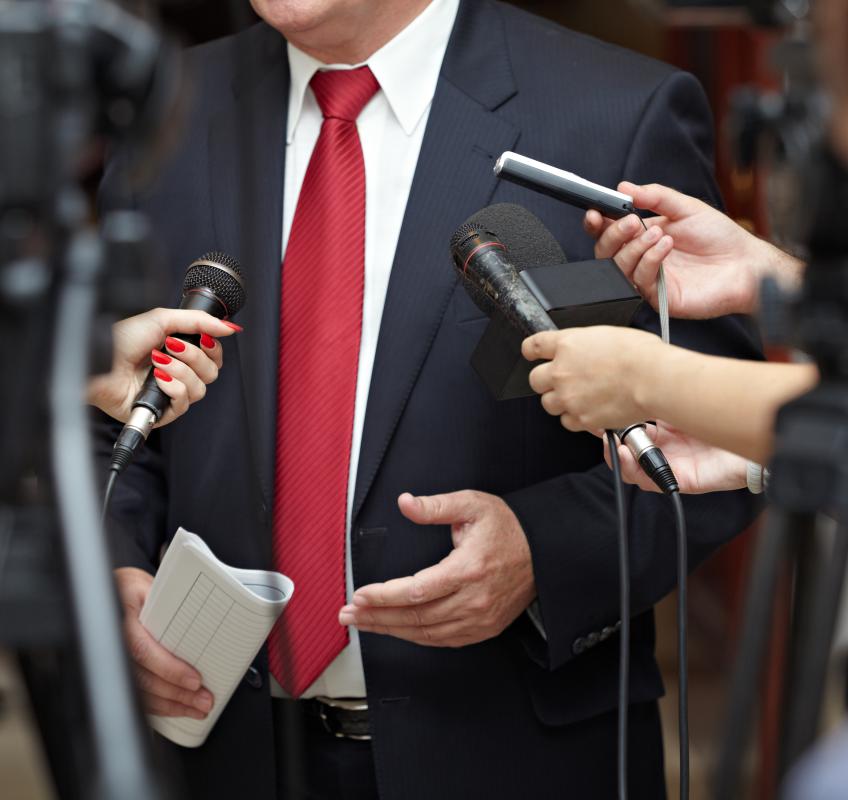At SmartCapitalMind, we're committed to delivering accurate, trustworthy information. Our expert-authored content is rigorously fact-checked and sourced from credible authorities. Discover how we uphold the highest standards in providing you with reliable knowledge.
What is the Relationship Between Political Science and Economics?
Political science and economics are social sciences. Political science is the study of politics in theory and practice, while economics is the study of how resources are produced, allocated, and distributed. As well as dealing with subjects that often relate to one another in everyday life, the two are commonly seen as sister subjects in academic terms.
A variety of topics related to politics are addressed by political science. This includes differing political philosophies about how society should operate. It also includes the way political systems work to produce laws and government.

Economics deals with two main areas. Microeconomics is the study of how individual consumers and businesses make production, purchasing, investment, and saving choices. Macroeconomics looks at how an entire economy works and the way policies can affect the combined effects of microeconomic decisions. It can be argued that economics is a social science rather than a pure science, because it is based around resolving an irresolvable dilemma: how to meet people's unlimited wants with limited resources.

The most prominent link between political science and economics is in the practicalities of government. For example, there may be a connection between whether a politician considers himself left-wing or right-wing, within the context of the country concerned, and whether the politician puts more weight into fiscal economics, which aims to stimulate the economy through government spending, or monetarist economics, which aims to stimulate the economy by influencing the price and availability of credit. There are many topics in which stances can have both a political and economic element, such as whether a government should attempt to reduce inequalities across society, work towards equalities of opportunity, or avoid any interference wherever possible. Taken as a whole, political and economic views can't always be simplified into two camps; for example, some politicians consider themselves economically conservative but socially liberal.
One of the most common crossovers between these social sciences is rational choice theory. This is the study of, and attempt to model, the ways in which individuals make choices. It could be argued that rational choice theory is an economic theory that is contradicted by political reality that is harder to objectify. For example, an economist would use rational choice theory in assuming that a consumer will always choose the cheapest supplier among those offering identical goods. Politics might explain why some consumers will instead choose to pay a higher price to get the goods from what they see as a more ethical supplier.
AS FEATURED ON:
AS FEATURED ON:












Discussion Comments
@comfyshoes and sunshine: You may want to take a closer look at your facts. The below graphs would be a good starting point. This site won't let me post the graphs, but you shouldn't have trouble finding historical information for unemployment rate, marginal tax rate, and national debt since 1929, if you want to make a facts based argument.
Roosevelt inherited an unemployment rate of 24.9 percent and a tax rate of 25 percent. Unemployment had skyrocketed under four years of Hoover. FDR raised taxes to 63 percent and unemployment generally dropped, at one point reaching 14.9 percent under his administration. He later put them as high as 94 percent during World War II.
Carter did not set taxes at 70 percent; they had not been below 70 percent since 1936, including through 3 Republican administrations, and an unprecedented expansion of the American economy. With such high tax rates, we were able to control the national debt. Reagan cut taxes to 28 percent in his final year in office, and Bush realized that was unsustainable and raised them again two years later. Still, taxes have been at historical lows since Reagan. Incidentally, the national debt has reached historical highs starting at the same time.
We need to stop cherry picking facts, and look at them as historical trends. We also need to raise taxes on the wealthiest Americans so we can get this debt paid off. It's the only way it has ever been done.
Comfyshoes-I loved President Reagan. He felt that businesses were the only ones that could create jobs and felt that the smaller the government that more freedom people would have which is another conservative principle.
Franklin Delano Roosevelt, like Obama believed that it was the government’s job to take care of the people. In doing so, he felt that everyone should pay high taxes so that all Americans could be safe.
The top tax rate was 80%, and unemployment was at depression levels of 20% or more. FDR created Social Security so that Americans could have something when they retired.
The young people working who would eventually get their share when they retired would fund this program. Roosevelt believed in entitlement programs and his focus on those at the expense of stimulating businesses probably prolonged the depression.
Many people actually study the relationship between economics and politics because it is really so relevant today.
It helps to understand why certain policies take precedent over others. Many political science jobs also research the results of political policies with respect to the economy.
GreenWeaver-I could not agree more. On the opposite side of the spectrum is President Ronald Reagan.
President Reagan believed in supply side economics. He felt the only way for the economy to grow was to stimulate the businesses. Since over 90% of the jobs created come from small businesses, President Reagan lowered tax rates for everyone.
The top tax rate when he took office was 70% which was set by Jimmy Carter. In addition to the high taxes, the unemployment rate was 10% and the interest rates were at 20%.
President Reagan believed that people when given economic opportunities to work the economy will prosper.
He did not believe in just offering welfare to people because he felt that their potential would not be tapped in that situation and they would be better served by having a job rather than receiving governmental assistance.
This is the cornerstone of the Conservative movement and what defines the platform of the Republican Party.
With these political beliefs, President Reagan cut taxes to 24% that allowed businesses to create 25 million new jobs. In addition, unemployment fell to 4% and the interest rates also fell to 8%.
President Reagan’s astute view of businesses and how they contribute to our economy was a blessing in a very trying economic time.
Icecream- I agree. You really have a point.
So far Obama has nationalized the banks, an automobile company, and will soon eliminate the need for private insurance companies to exist with the socialized health care bill.
Obama has never run a business before and maybe this lack of understanding of the fundamentals in business along with his disastrous socialist economic policies and beliefs has led to record high double digit unemployment with no change in the near future.
There is a large correlation between politics and economics because it is your political ideology that shapes your views on economics.
For example, Obama’s political views are to the left of the American mainstream and his policies reflect his socialist ideals.
This simply means that Obama believes that socialism and governmental control over businesses helps to keep the businesses from taking advantage of the poor.
In addition, he feels that distribution of wealth is not only a good idea, but a necessary element in a fair society. In his book, “Dreams of My Father” he discusses in depth how his father’s communist views influenced him early on.
His father even said in a speech that taxing 100% of people’s incomes is justifiable. In addition, Obama’s favorite author Saul Alinsky and his book, “Rules for Radicals” talks about government takeover of industries in order to further the socialist agenda.
Post your comments